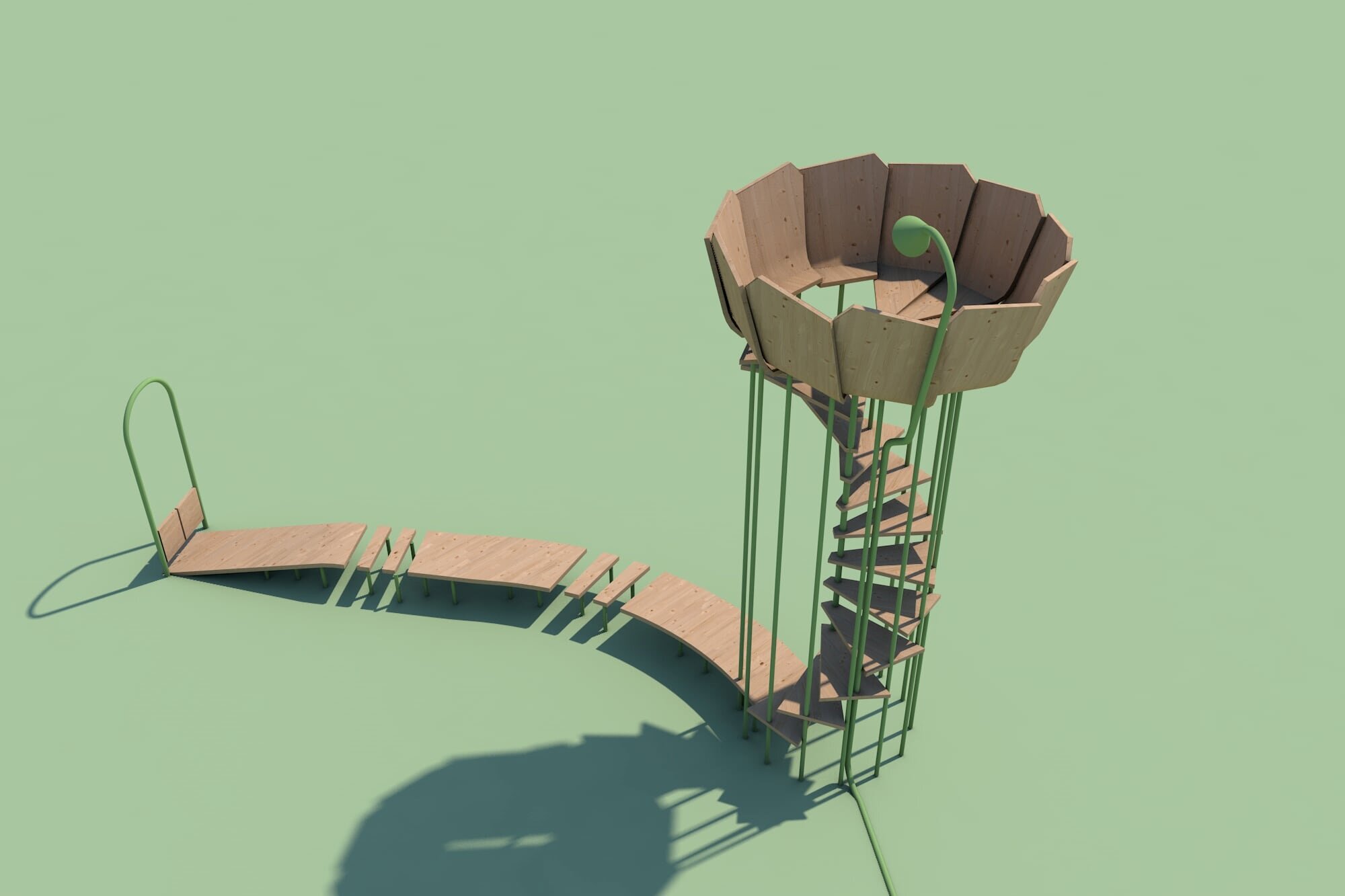A Covid-19 inspired infection free playground
Berlin inventors Martin Binder and Claudio Rimmele have used the Covid-19 pandemic as a creative challenge in which to create, “an infection-free playground inspired by nature.”
The pair posed the question, “can a space be created that protects against potential contagions, yet still allows complex interaction and communication?”
The inventors took on the Covid-inspired challenge because currently in Germany children can’t play with unknown children.
Although playgrounds have opened again in Germany, children still can not play with unknown children, and many countries around the world still have their playgrounds closed.
Binder, a designer and artist, and Rimmele, a psychologist and publicist, conducted telephone interviews with children and parents, and came to the conclusion that their playground could not be as sterile as a laboratory.
Binder and Rimmele did telephone interviews with children and parents.
Rimbin is based on six principles;
Each child is given a single playing area
There is individual access to this playing area
Children can see each other
Children can communicate with each other
Children can be kept in view of parents
Children can play different games from a safe distance.
In Rimbin, each child has their own play platform, allowing them to play together without risk of catching Covid-19. A path with a separate entrance leads to each platform, and when an area is occupied this can be easily seen at the entrance gate.
The design can keep children unknown to each other, seperate.
The shape of Rimbin’s play areas is based on the leaves of the Amazon water lily, and the designers think that they, “should be as safe and stable for children as these leaves.” Clustered together like lily pads on a pond, some of the individual play areas have sand, and others ladders or even horizontal hamster wheels.
There are interactive play options between the different platforms, such as seesaws and speaking tubes, positioned with enough distance that children are not encouraged to touch the funnel at the end of the tube.
The designers propose that permanent disinfectant dispensers are installed for parents, and all materials that are exposed to direct contact, such as handles and tubes, are metal for easy sanitising.
Because Rimbin is modular, the number of play areas can be adapted to expected visitor volume.
The designers suggest permanent disinfectant dispensers are installed.
Children need interactive outdoor play in order to develop social skills, and for their physical and mental development. Therefore a long-term rethinking of playgrounds in urban cities is urgently needed, and Binder and Rimmele envision that their playground could be used both during and post-pandemic.
The aim of Rimbin is, “to develop a conceptual playworld that enables children to enjoy exciting and inspiring encounters- even after the pandemic. The needs of children are at the centre of attention.”




